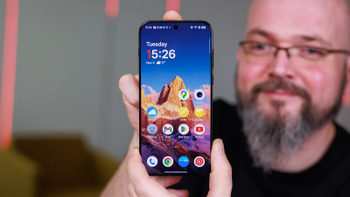Android ranked the most "closed" open source project: here's why


Google’s platform is now the most popular mobile OS in the world, but many point out that it does not fit the open source paradigm 100%. Vision Mobile has taken on the task to measure the “true openness” of open source projects. Its report focused on 8 candidates: Android, MeeGo, Symbian, WebKit, Mozilla, Eclipse, Qt and Linux.
To accurately measure the projects, it used what it calls an Open Governance index. The index is based on four pillars - Access, Development, Derivatives, Community. As you’ve already seen in the headline, Android was the overall “winner” for most closed open source project. Why?
Measuring how open an open source project is starts with the source code: it should be freely available to the public. Here’s where Google’s platform took the first beating: “Android is the only mainstream mobile open source project that does not freely provide source code access to all developers at the same time,” the report concludes.
The second criteria, development, shows whether it’s easy or not to identify who contributes to the project. Here Qt and WebKit ranked worst as they don’t allow you to see who contributes and this influences the project.
Now, the third criteria, derivatives, is very interesting because it measures whether trademarks are used to control how the project is distributed or not. True open source projects in that regard are Eclipe, Linux, Mozilla, Qt and WebKit, all of which allow you to freely distribute the code and use the project trademark. Android in contrast comes with Android Market which is only available after signing a commercial agreement with Google.
Finally, the community criterion estimates how the community is managed - in a flat or a tiered structure. Eclipse and Mozilla are the ones offering tiered rights.
Combine all of this, and you arrive at the sad result of Android scoring only 23% on the Open Governance Index. It seems clear that Android is more strictly governed than the others, but is that a bad or a good thing, and why? Could Google’s tighter control actually bring coherence? Check out the infographic on the right and chime in with your opinions in the comments below.
source: Vision Mobile
Follow us on Google News









![A new Android bug is making it impossible to install new apps. Are you affected? [UPDATE]](https://m-cdn.phonearena.com/images/article/176703-wide-two_350/A-new-Android-bug-is-making-it-impossible-to-install-new-apps.-Are-you-affected-UPDATE.webp)


Things that are NOT allowed:
To help keep our community safe and free from spam, we apply temporary limits to newly created accounts: